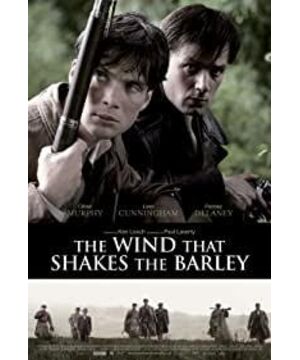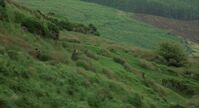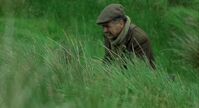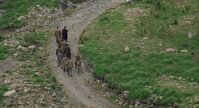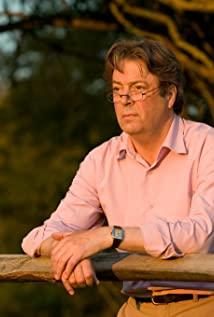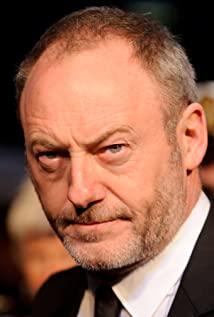In May of this year, when Ken Lodge won the Palme d'Or for "Wind Blowing Rice Waves", my reaction was that it was another historical film. This reminds me of Polanski’s "The Pianist", who was awarded this honor in 2002. It is quite inconsistent—it is true that the audiovisual language is good and the story is compact, but the suffering of history still stays on the cliché—I am afraid. This is another epic poem of "cliche".
But after reading it, I feel that this is indeed a work of courage and conscience. The English title "Wind that Shakes the Barley" is taken from the ballad of the Irish poet and composer Robert Will Joyce, which has been sung in Ireland for a long time. This film has been translated as "The Wind Blows the Rice Waves", but my friend reminded me that Ireland does not produce rice and Barley is just barley, so it should be translated as "The Wind Blows the Wheat Waves". When it was released in Taiwan, it was literally translated as "The Wind Blowing Barley", but it was not literary.
Ken Lodge was born in a working family in Warwickshire, England. He began filming in 1967. His "The Kid and the Eagle" became a key work in the history of British film. (Kislovsky in the film school When I was reading this film, I said, "I don't want to be his assistant, I am willing to give him bubble coffee by his side, I just want to see how he made the film"). Ken Rocky has never compromised with the government. In my impression, he is dedicated to shooting themes of the low-level society in the British suburbs, and his realistic style makes him look ruthless.
The famous movies about Irish history that have been deeply moved before, one is "Crying Game" and the other is "Bloody Sunday". The events described in "The Wind Blowing the Rice Waves" are even more ancient, with the background in the Irish civil war in 1920. In 1919, the brutal rule of the British army triggered the Irish War of Independence. Two years later, the two sides signed a treaty allowing Ireland to govern itself, but the 6 northern counties (now Northern Ireland) still belonged to the United Kingdom. There was an immediate civil war between the main battle in Ireland and the two factions. Ken Lodge and his screenwriters cut very well at this point in 1920, causing the conflict of thought and destiny between the two protagonists to collide extremely fiercely in the short historical space.
The protagonist of the story is Damien, a weak-looking doctor who believes in peace. He followed his brother Teddy to join the Resistance after witnessing the British persecution of his compatriots. For the ideals of independence and freedom, Damien not only went to prison and died, but also personally killed his friends who compromised with the British army. When the compromised and incomplete peace came, Damien and many of his comrades decided to continue fighting, but Teddy put on the uniform of the Irish government army to maintain the peace he thought was hard-won. In the end, the brothers turned back for a different definition of peace, and Teddy personally ordered his brother to be shot.
The style of the whole film is still Ken Rocky's unmodified style, without the "Brave Heart"-style romantic revolutionism and beautified battle scenes. Many western commentators have pointed out that whether you agree with Ken Lodge’s statement of this period of history, you have to admit that this is a heart-wrenching work. Yes, especially at the end, any sentimental audience will be speechless.
"The Wind Blows the Rice Waves" is not Ken Lodge's first historical film. He has made "Deadly Archives" which reflects the Irish Revolution, "Song of Cara" which reflects the liberation struggle of Nicaragua, and "Land and Freedom" which is the Spanish Civil War. ——These films are absolutely niche. After the release of "The Wind Blowing the Rice Waves", the Irish Public Broadcasting Corporation joked that Ken Roach probably never dreamed that his work would one day become a "mainstream film" in Ireland. The film was shown in one of the few theaters in the UK and Ireland, and the box office exceeded 30 million pounds. It is said that many Irish people "shed tears in the theater on the spot."
On the Chinese official website of "Wind Blowing Rice Waves", there is a sentence: "The river in Ireland is salty; because that is the tears of the Irish." For those of us who do not really understand Irish history, we obviously cannot Like them, I feel the same for this film. But fortunately, Ken Rock's vision is by no means narrow. He presents the conflict between humanity (brothers and compatriots' love) with reality and ideals in a plain but sharp story.
The more important value of "Wind Blowing Rice Waves" is far from a review of history, but a reflection on reality. Ken Lodge himself said, “Now, in Iraq, we know the names of the British and Americans who died, but we don’t know how many Iraqis were killed. So the value of the lives of the people in the occupied territories is considered far Lower than the value of the life of the occupier. What I said is just an example, but stories like Ireland are always repeated. "This is the most respectable aspect of this film. When accepting the Palme d’Or awards, the director said the meaning of "The Wind Blows the Rice Waves": “We tell the truth about history, we are telling the truth about the present.”
Reprinted on Phoenix.com, save it first, and write it yourself someday. Articles. . . .
View more about The Wind that Shakes the Barley reviews


